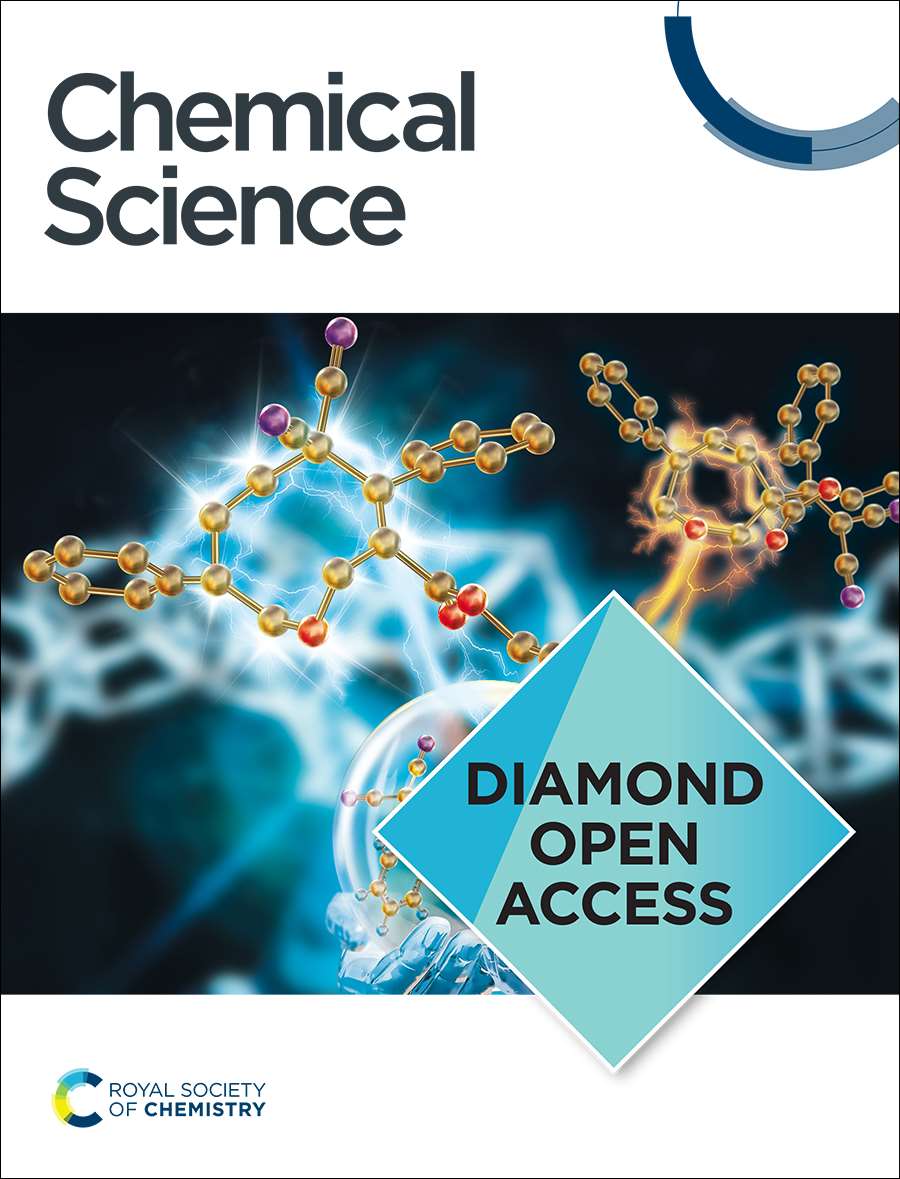Enantioselective homocoupling of allenylic alcohols through divergent cooperative catalysis
IF 7.4
1区 化学
Q1 CHEMISTRY, MULTIDISCIPLINARY
引用次数: 0
Abstract
An enantioselective homocoupling of branched allenylic alcohols is developed under cooperative iridium and Lewis acid catalysis. In this reaction, racemic allenylic alcohol is transformed, under Lewis acidic Sc(OTf)3, into an alpha,beta-unsaturated enol (cross dienol) through a Meyer-Schuster-type 1,3-hydroxy transposition. In an independent cycle, catalyzed by a combination of an Ir(I)/(phosphoramidite,olefin) complex and Sc(OTf)3, allenylic alcohol is proposed to produce an η2-Ir(I)-bound allenylic carbocation intermediate, which is intercepted by the in situ generated cross dienol. Overall, starting from racemic branched allenylic alcohols, α′-allenylic alpha,beta-unsaturated ketones are produced, without using any preformed carbon nucleophile, in moderate to good yields with excellent enantioselectivities. This strategy may be termed as divergent cooperative catalysis, where a single substrate is converted into two transient intermediates of complementary polarity under the influence of two different catalysts. The selective coupling of these two polarity-matched intermediates results in the desired product. Mechanistic details are unraveled through experimental studies and density functional theory (DFT) calculations.通过发散协同催化的烯醇对映选择性均偶联
研究了支链烯醇在铱和路易斯酸协同催化下的对映选择性均偶联反应。在该反应中,外消旋烯醇在Lewis酸Sc(OTf)3的作用下通过meyer - schuster型1,3-羟基转位转化为α, β -不饱和烯醇(交叉二烯醇)。在一个独立的循环中,在Ir(I)/(磷酰胺,烯烃)配合物和Sc(OTf)3的组合催化下,烯醇生成了一个2-Ir(I)结合的烯基碳正离子中间体,该中间体被原位生成的交叉二烯醇拦截。总的来说,从外消旋支链烯醇开始,不使用任何预成型的碳亲核试剂,以中等到良好的产率生产α ' -烯基α, β -不饱和酮,具有优异的对映选择性。这种策略可以称为发散协同催化,在两种不同催化剂的影响下,单一底物转化为两种极性互补的瞬态中间体。这两个极性匹配的中间体的选择性耦合产生所需的产物。通过实验研究和密度泛函理论(DFT)计算,揭示了机械细节。
本文章由计算机程序翻译,如有差异,请以英文原文为准。
求助全文
约1分钟内获得全文
求助全文
来源期刊

Chemical Science
CHEMISTRY, MULTIDISCIPLINARY-
CiteScore
14.40
自引率
4.80%
发文量
1352
审稿时长
2.1 months
期刊介绍:
Chemical Science is a journal that encompasses various disciplines within the chemical sciences. Its scope includes publishing ground-breaking research with significant implications for its respective field, as well as appealing to a wider audience in related areas. To be considered for publication, articles must showcase innovative and original advances in their field of study and be presented in a manner that is understandable to scientists from diverse backgrounds. However, the journal generally does not publish highly specialized research.
 求助内容:
求助内容: 应助结果提醒方式:
应助结果提醒方式:


